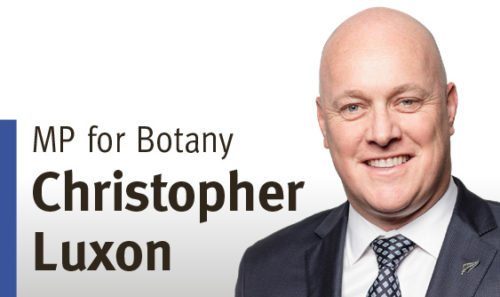
The most alarming and confronting statistic I have read since becoming an MP is that only 58 per cent of our children are attending school regularly – meaning more than 90 per cent of the time.
Irrespective of Covid-19, attendance has been on a downward trajectory for the last four years. It’s a massive challenge for schools with 300,000 children not attending school regularly. Lots of talk and concern from this government is not the same as implementing real actions to drastically improve attendance results.
There clearly are insufficient consequences for schools and parents when children are truant. Instead we’re creating, as my colleague Paul Goldsmith has said, “a culture of excuses” that focus too much on trying to make schools attractive to students, rather than on the consequences for non-attendance. Of course, parents are critical to this problem and need to make sure that their kids are getting to school. It is part of their responsibility as a citizen.
The No.1 job has to be getting our children to school and attending regularly before we work out what and how to teach them. However, there have been a number of worrying international reports and surveys highlighting our declining primary and secondary students’ educational performance. As a result, our international rankings in reading, maths and science have slipped, in some cases markedly.
New Zealand’s ranking in reading literacy fell from 13 to 30 out of 41 countries between 2001 and 2016, our maths achievement in 2019 ranked 30 out of the 32 OECD countries, and our relative science achievement was similarly poor with a ranking of 29 out of 32 OECD countries.
Yet, while we could always spend more, it really is not an investment issue. At the same time, New Zealand’s per-pupil education spending on primary and secondary students has increased substantially, both in absolute and relative terms.
One important factor to our significant decline in educational achievement might be the child-centred philosophy that has taken root within New Zealand’s education system. The current teaching philosophy says students should be leading their own learning and teachers only facilitate rather than lead and instruct directly from the front of the classroom.
My personal view is that we must move away from a child-centred learning philosophy towards evidence-based teacher-lead instruction. This change should be supported by mandatory standardised national assessment and a new national curriculum based on disciplinary knowledge, not competencies.
New Zealand’s rapidly falling international performance in the basics of reading, maths and science should be extremely concerning for all of us. I worry, not because of a graph on a league table, but because of the strong link between educational attainment and higher wages.
Higher wages and greater job opportunities underpin the choices that New Zealand families have in how they live their lives. I want those choices to be better for more New Zealand families.
- Christopher Luxon, MP for Botany








